Category: Ecology
Ecology is one of the three main pillars of the Rojava Revolution and the stateless self-governance model of the Autonomous Administrations of North and East Syria (AANES), as well as the Kurdish freedom movement more broadly, which initiated the revolution.
Although ecology is one of the main pillars of the revolution in North and East Syria, it is also sadly one of the least developed. This is due to the challenges of being at the epicentre of a global conflict and under heavy economic embargo in a desertifying region suffering immense water scarcity that has been forced into a pesticide and chemical fertiliser heavy form of monocrop agriculture for forty years. To add to these troubles, the rivers which flow through the region are controlled by hostile state of Turkey, which frequently detains water flow.
In Bakur (north Kurdistan / southeastern Turkey), ecological destruction is also used as a weapon of war. Hydroelectric megaprojects have been used to control village populations, displacing hundreds of thousands of people and literally submerging entire towns.
Below you can find articles with more information about attempts to create ecological projects in both regions, the ecological pillar of the Rojava Revolution, and the struggle against ecocide in southeastern Turkey.
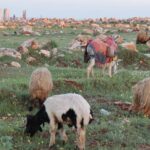
Defending Life: Resistance Means Peace and Afrin Means Home
What does true peace mean in these warlike times, and what does it have to do with home?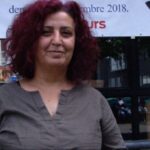
Göksungur: Ecological struggle is inseparable from women and democracy
Fatoş Göksungur said that democracy depends on both ecological balance and women’s freedom, stressing that one cannot exist without the other.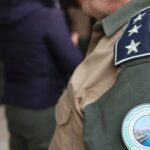
Environmental Protection Forces established in North-East Syria
A new special unit has been established in North-East Syria to protect the environment. The Environmental Protection Forces are tasked with curbing environmental violations, conducting patrols, and, in the future, responding to natural disasters. The Democratic Autonomous Administration of North and East Syria (DAANES) has established a new special unit to protect the environment. The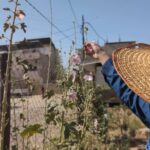
Navenda Jiyan – A free life begins with a connection to and love for nature
It is summer: Harvest time. Here at the Navenda Jiyan Natural Health Center, seeds are collected every day. Plants are watered, bees are fed, potatoes are harvested, and flowers and leaves are diligently picked. The results of this laborious work are gathered in the drying room, where they slowly dried to be used later for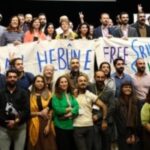
Joint commissions to be established for the right to water
At the 2nd Mesopotamia Water Forum held in Amed, participants developed proposals addressing the obstruction of access to water, ecological destruction, and the protection of water resources.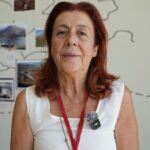
Water crisis deepens: It has become a strategy of war
Ecologist Beyaz Üstün said that the global climate crisis is in fact a water crisis and warned that if it is not stopped it will lead to greater disasters.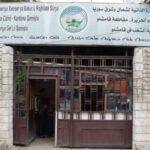
Women Protect the Environment Through Democratic Municipalities
In the Jazira region of the Autonomous Administration of North and East Syria, women play an active role in municipal work, contributing to the protection of the environment and life through a democratic administrative model.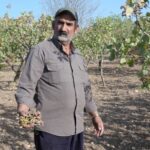
Farmer Evin: The dam only brought poverty
Farmer Mehmet Sıddık Evin said that the Ilısu Dam, along with other dams built across the province, has destroyed the productivity of pistachio orchards: “These dams brought us nothing but poverty,” he said.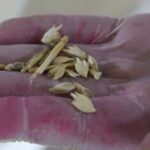
Modern seed center in Hesekê begins operations
A new seed processing center equipped with laser technology has been opened in Hesekê. The facility is intended to supply farmers in northeast Syria with high-quality seeds and modernize agriculture. Its daily capacity is up to 60 tons. In the city of Hesekê, the Seed Institute of North and East Syria has launched its first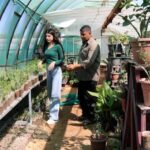
AANES to establish environmental analysis lab in Kobani
KOBANI, Syria (North Press) – An official of the Autonomous Administration of North and East Syria (AANES) said on Monday that preparations are underway to open an environmental analysis laboratory in the city of Kobani, northern Syria, to monitor and address pollution. Ahin Hussein, head of the Laboratories Department at the Kobani Environment Board, told North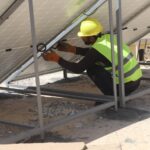
DAA boosts schools in Deir Ezzor with solar and water solutions
The Democratic Autonomous Administration of Deir Ezzor (DAA) is implementing an environmental and developmental project in the governorate’s schools. The project involves installing solar energy systems to provide a stable, eco-friendly electricity source, improve the educational environment, reduce operational costs, and raise awareness about the importance of clean energy.
